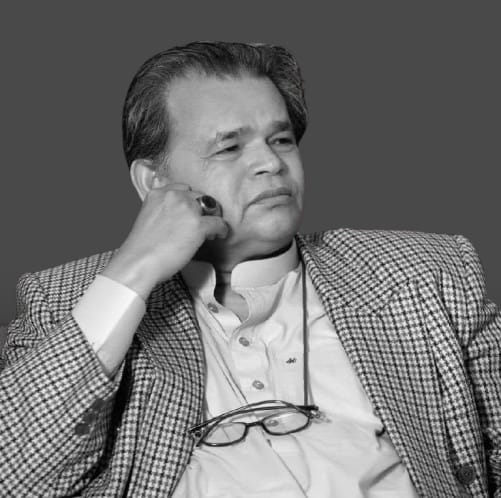By: Azam Mairaj
On 14 May 2025, the Federal Public Service Commission (FPSC) announced the final results of the CSS Special Exam. Out of 15,242 candidates, 519 cleared the written test, and 489 passed all stages. However, due to systemic issues, only 141 were appointed. Even after passing all stages, the remaining candidates were left behind. The political and administrative elite should ensure these capable individuals are respectfully accommodated in public service by coordinating with provincial governments. After dedicating several valuable years to meet your standards, it is now the government’s responsibility to absorb them. Who will be held accountable for the shattered dreams of these 348 individuals?
This is a serious issue that writers like Taufiq Butt should highlight. Reportedly, due to three of his columns, the upper age limit for CSS was increased to 35 years, and candidates were allowed five attempts. Well done, Mr. Butt!
This subject deserves national-level attention from writers and TV programs. And those 348 deserving candidates must organize and fight for their rights.
Now, let’s turn to the core subject of this article: how the minority quota has been a tremendous blessing.
Among the 141 appointed candidates, 16 belonged to religious minorities—7 Christians, 7 Hindus, and two possibly from other religious communities. Interestingly, it’s often these very communities whose representatives in NGOs react harshly to the idea of religious identity in the demand for dual voting rights, yet they fully claim their constitutional quota.
Out of the 7 Christian candidates, 3 were selected for the Foreign Services, 2 for the Police, and 2 for the Administration.
Here are the names, merit numbers, and groups of the 16 selected minority candidates:
1. Nayab Maqsood – Merit 92 – PAS
2. J. Kumar – Merit 97 – Foreign Services
3. Sunil Younus – Merit 101 – PAS
4. Aroosa Azam – Merit 104
5. Aliza Arif – Merit 165
6. Talha Ahmed – Merit 200 – PAS
7. Anil Kumar – Merit 212 – PAAS
8. Sinal Kumar – Merit 228 – CTG
9. Jeevan – Merit 250 – OMG
10. Zeeshan Oliver Parvaiz – Merit 277 – Foreign Services
11. Samron Ephraim – Merit 327 – Foreign Services
12. Afra Zahid – Merit 331 – Police Service
13. Besham Kumar – Merit 366 – OMG
14. Youshub Kamran – Merit 419 – Police Service
15. Pooja – Merit 430 – OMG
16. Roopa Moti – Cleared the written exam but didn’t appear for the psychological or interview stages.
The reason for listing merit numbers is to highlight that high-tier services like Foreign Services, PAS, Police, Customs, and Inland Revenue used to be reserved for top merit candidates. But since the 5% minority quota was introduced in 2010 (enforced from 2012 onwards), minority candidates have begun to receive allocations in these top groups as well—something nearly impossible before unless one was among the top merit holders.
The goal here is to showcase the impact of this quota, which was made possible by Shahbaz Bhatti’s efforts. Every year, about 15 prestigious positions are reserved for minorities. Yet, often, only one or two candidates qualify, and many reserved seats remain unclaimed—accumulating over the years. That’s why the CSS Special Exam 2023 was held to fill unclaimed posts for minorities and smaller provinces.
Although this exam succeeded in benefiting candidates from Balochistan and Sindh, it fell short in delivering for minorities. The Tehreek-e-Shanakht (Identity Movement) proudly claims that its awareness campaign led to around 850 minority candidates appearing in this exam—a historical first, as this number had never reached even double digits before.
However, I must humbly admit that the movement failed to convince its allied religious and social forums that merit would not be compromised—only allocation would be affected due to the quota. Thus, although participation increased, the success ratio remained very low.
Still, the silver lining is that awareness reached over 850,000 individuals, the impact of which will trickle down to future generations.
Out of more than 100 reserved posts, only 15 were filled. This means that minority leaders across all sectors must work strategically and rigorously. Especially for Christian youth, the myth must be shattered that they can only achieve top positions through quota.
Yes, the quota is our right, but we must also prove—through hard work and competition—that excellence is our hallmark. We are the heirs of Samuel Burq, Dilshad Najmuddin, Sarfaraz Shadi Khan, and Samuel Joshua.
The first step: at least 1,000 minority candidates should appear in CSS every year. Even with a 1.5% pass rate, at least 15–16 will succeed and fill the reserved seats.
To understand how significant this opportunity is: In this Special CSS exam, none of the top 12 position holders were allocated to Foreign Services, PAS, Police, Customs, or Income Tax. Even the 9th rank holder did not receive a job!
In the next article, we will evaluate the historical performance (since 1926) of minority officers appointed in such elite groups.
Note:
This article has been carefully compiled to promote the vision of Tehreek-e-Shanakht—“Integration through Identity for Development and Survival”. Please understand this philosophy and help disseminate it.


